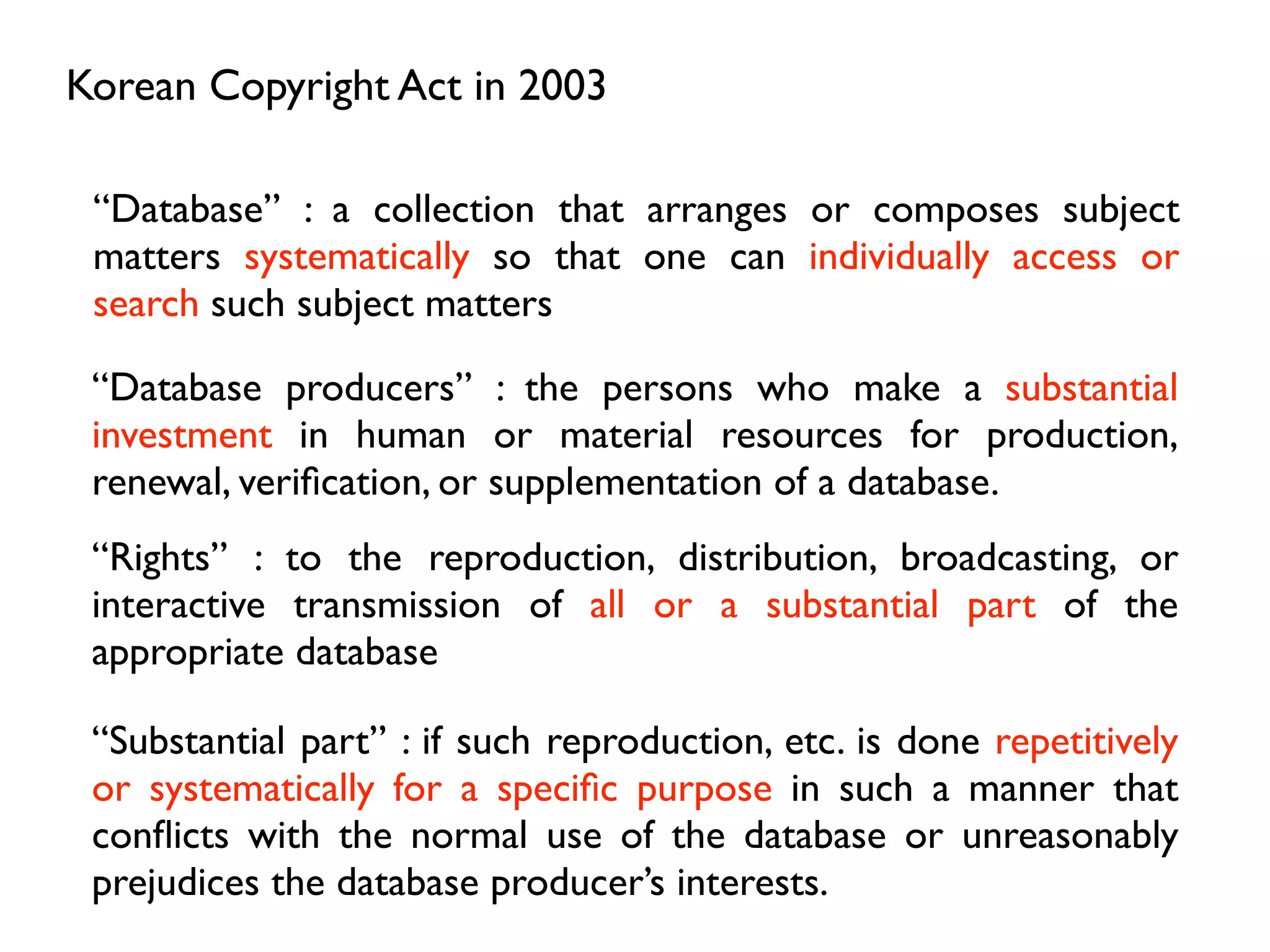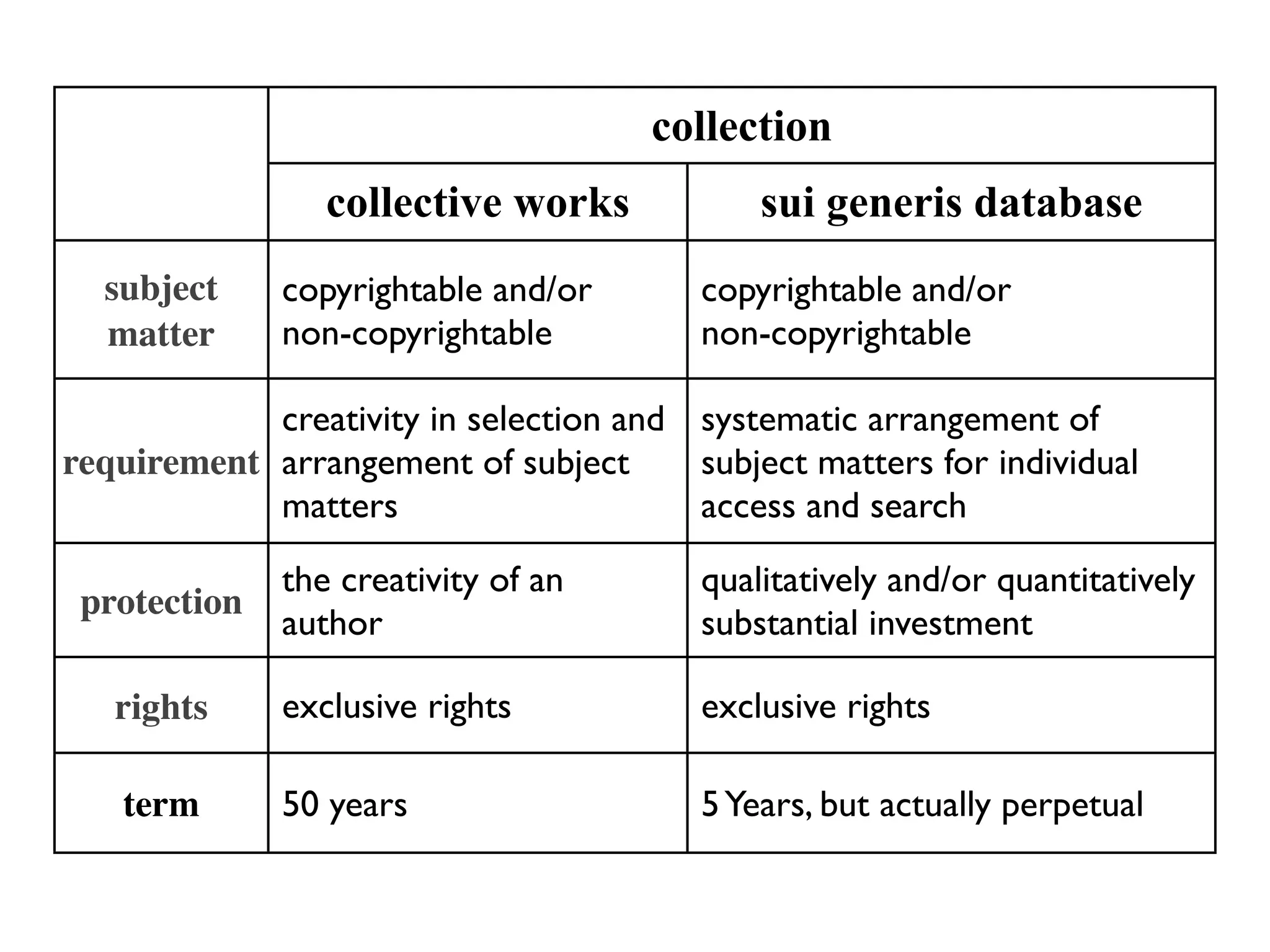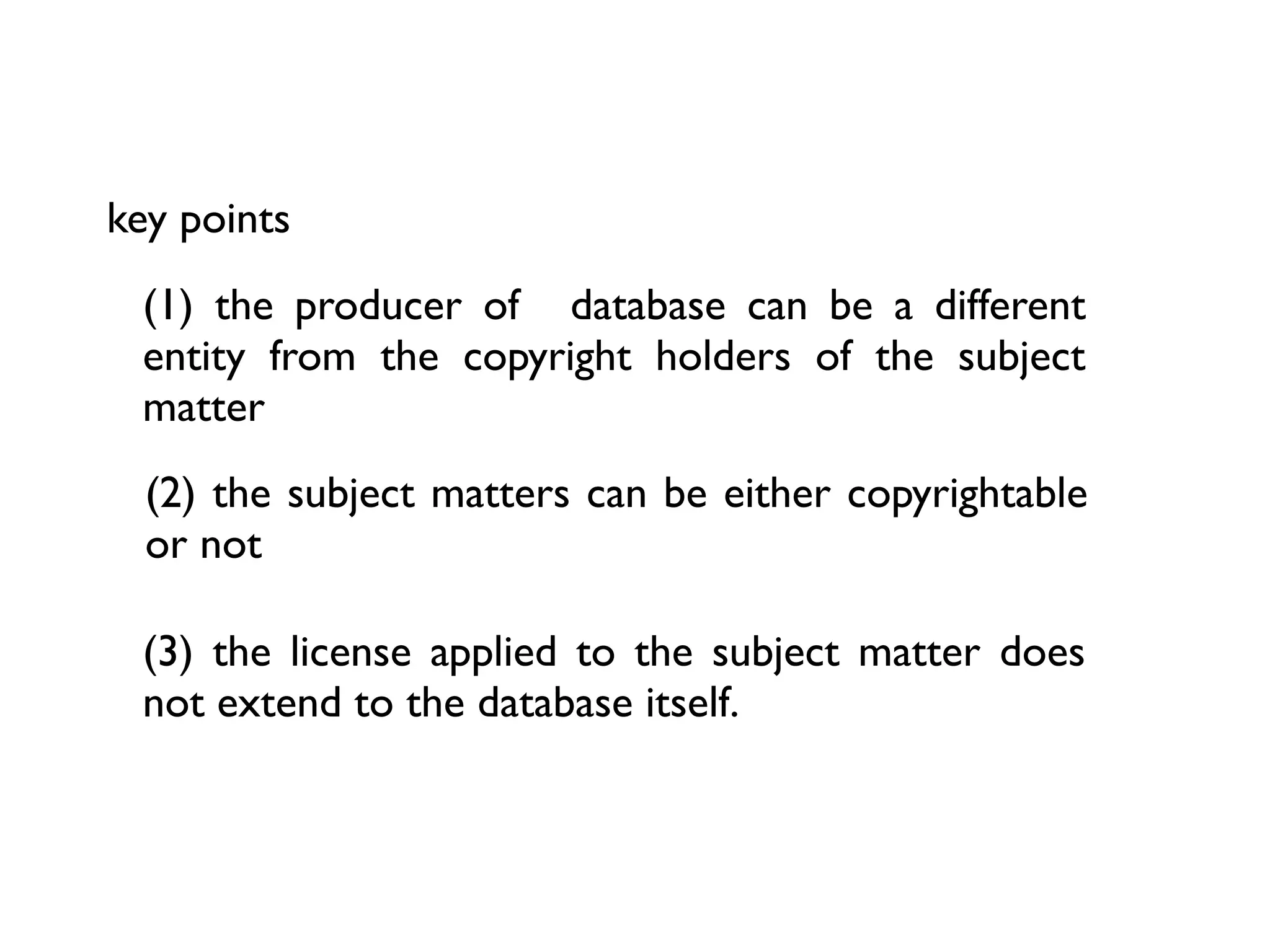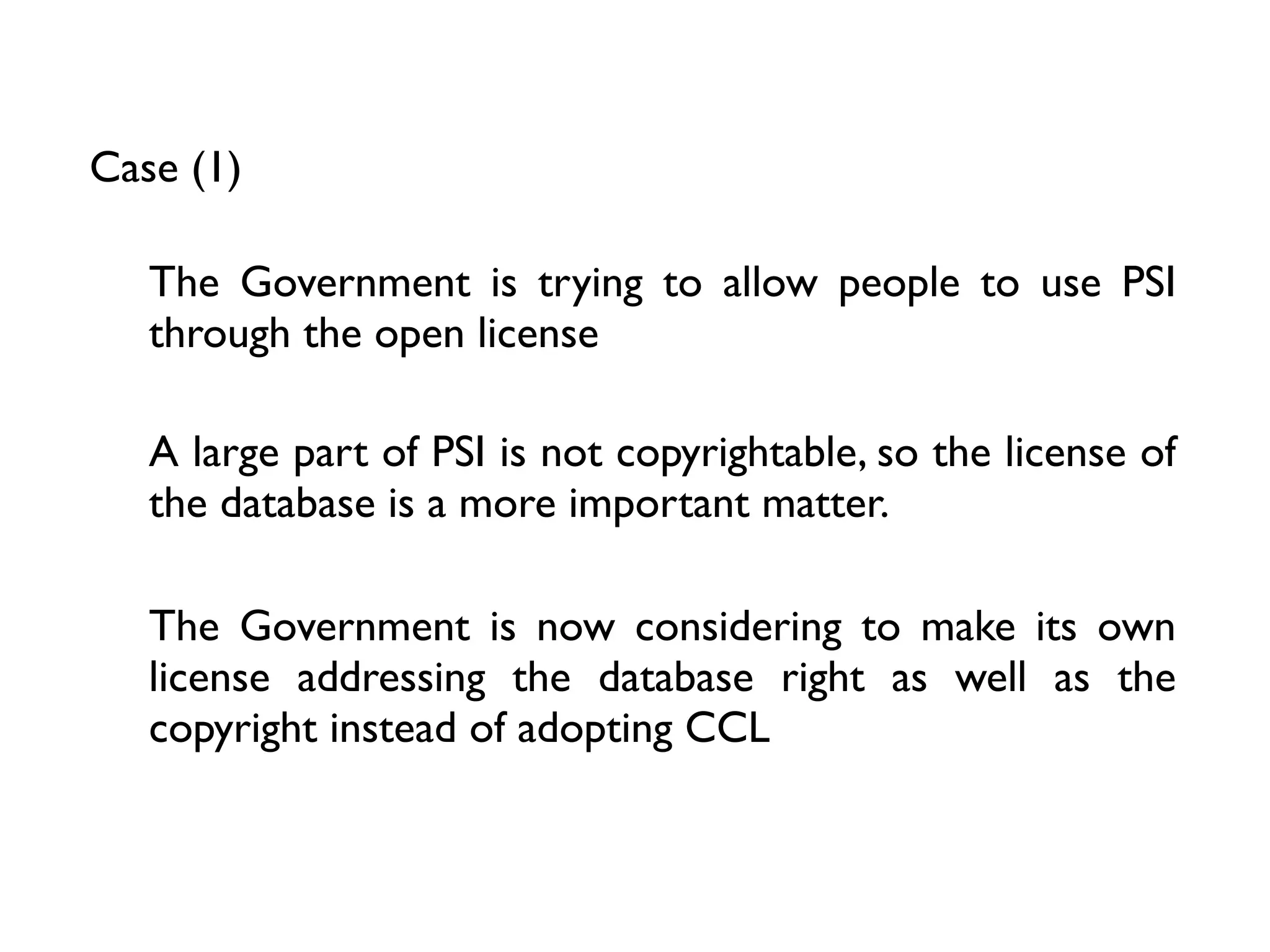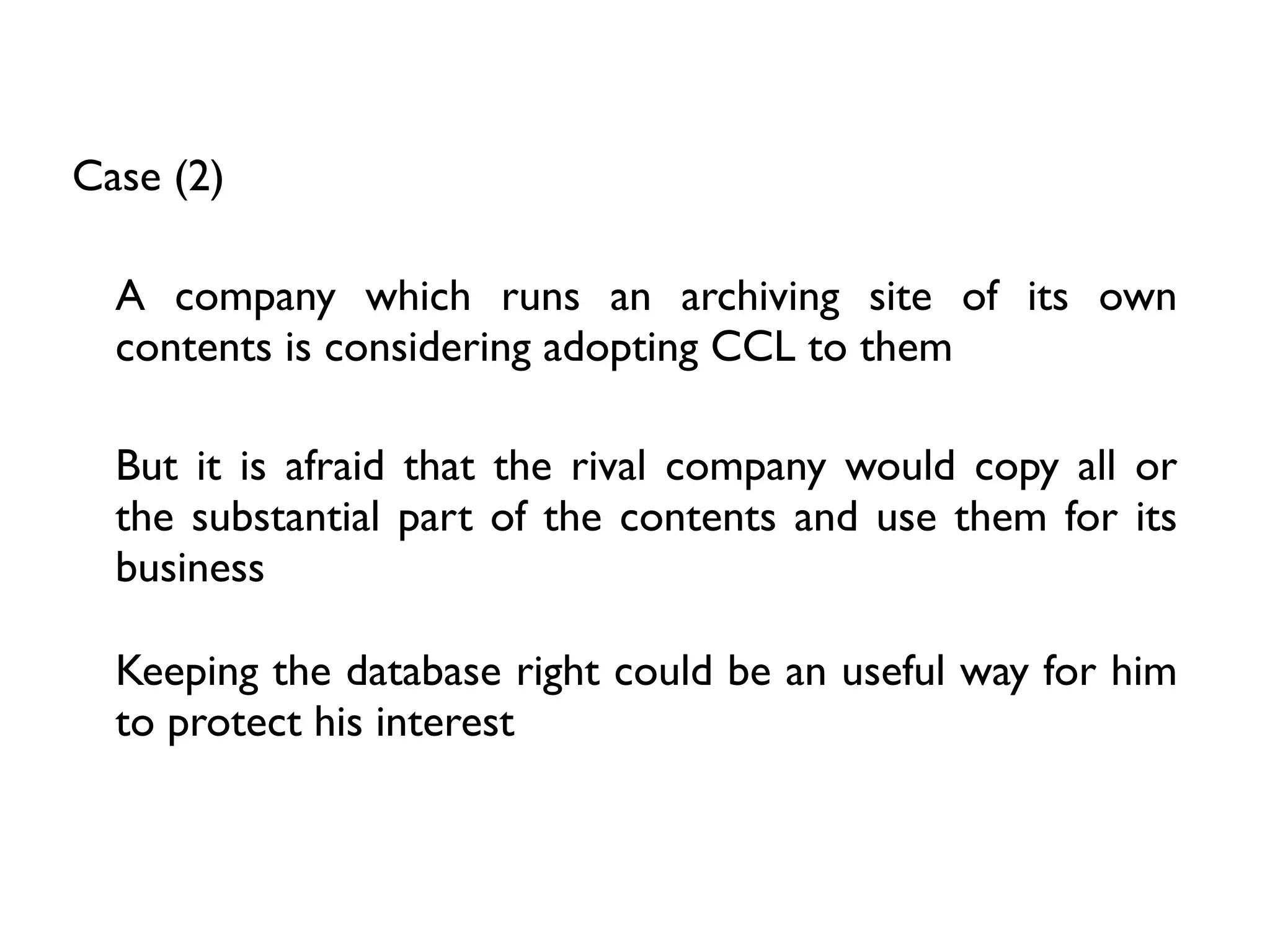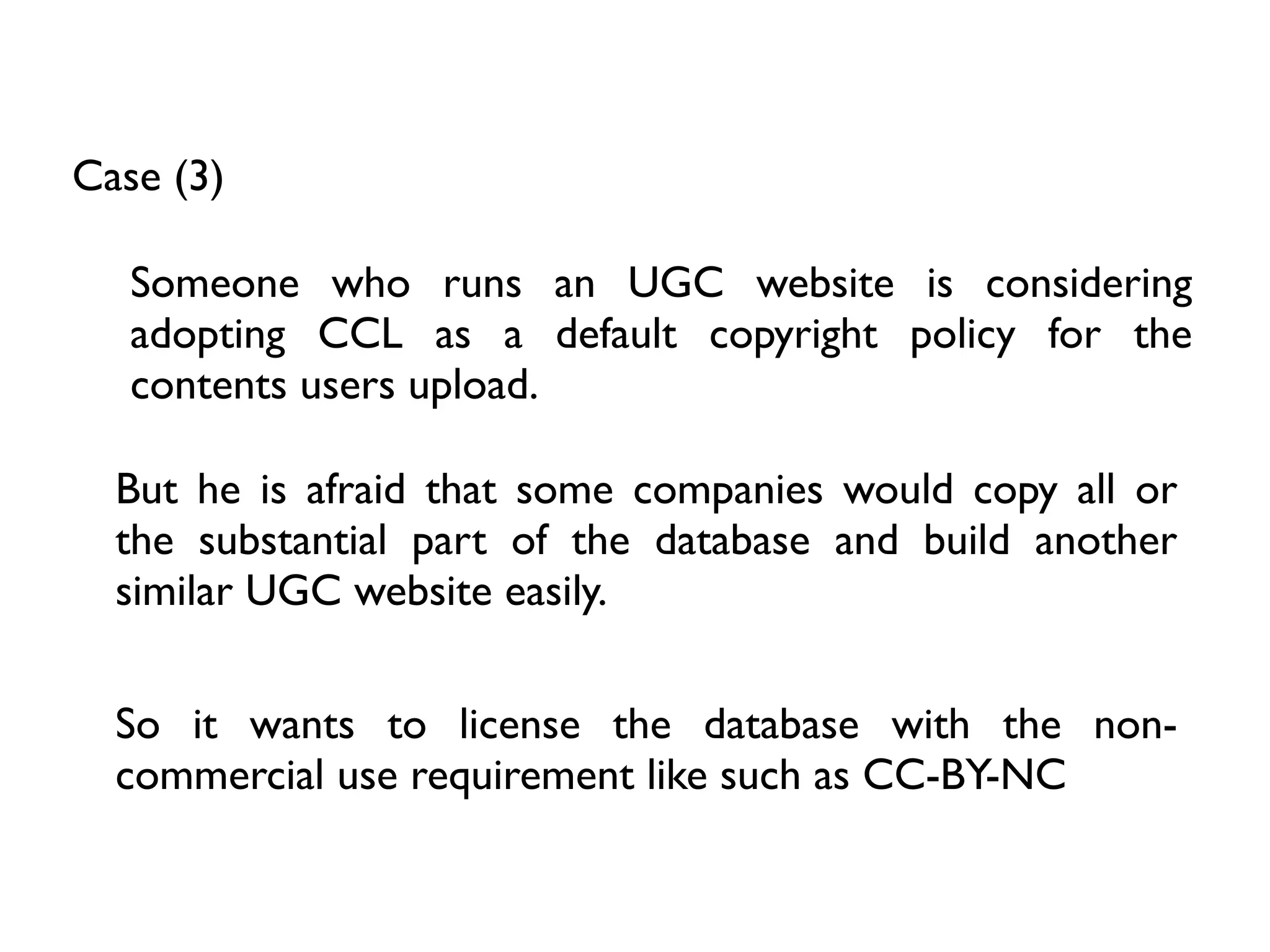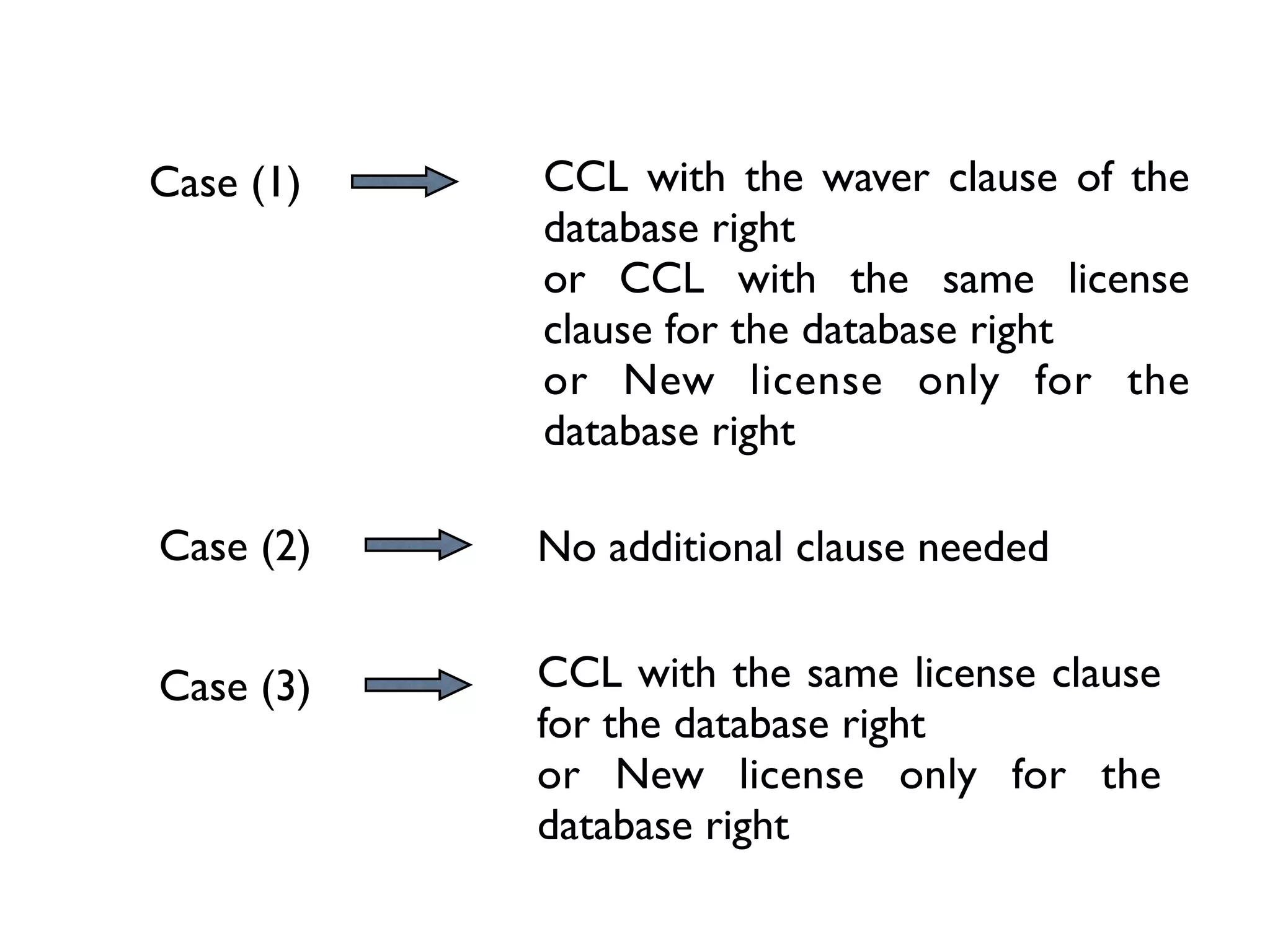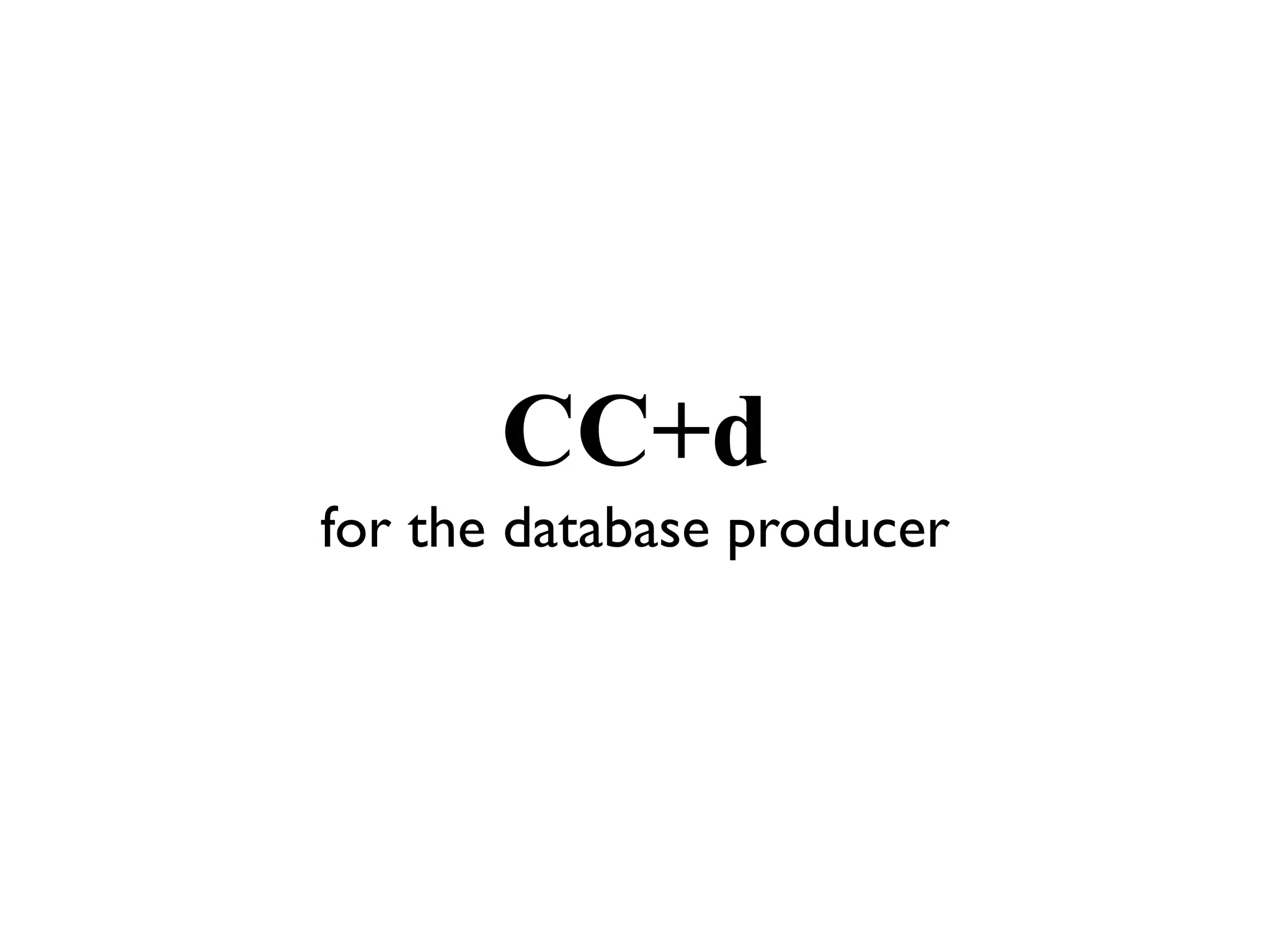The Korean Copyright Act of 2003 defines key terms related to databases and sui generis rights for databases. It defines a database as a collection of information arranged systematically that can be individually accessed. Database producers are those who make a substantial investment to produce, renew, verify or supplement a database. They have rights to control the reproduction, distribution, broadcasting or transmission of all or a substantial part of the database. Using a substantial part repetitively or systematically in a way that conflicts with the normal use of the database or prejudices the producer's interests violates these rights. The Act provides database producers exclusive rights and protection for 5 years, effectively in perpetuity.
